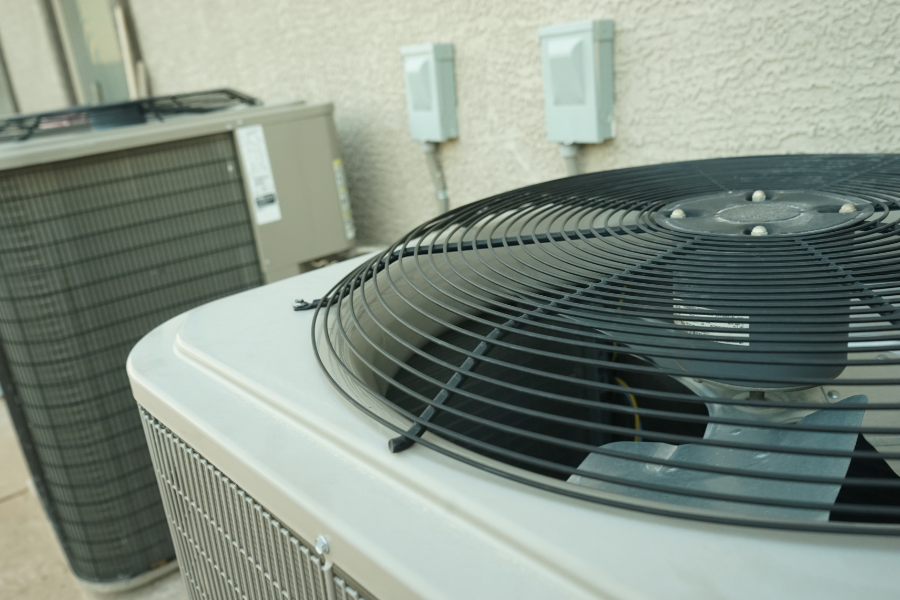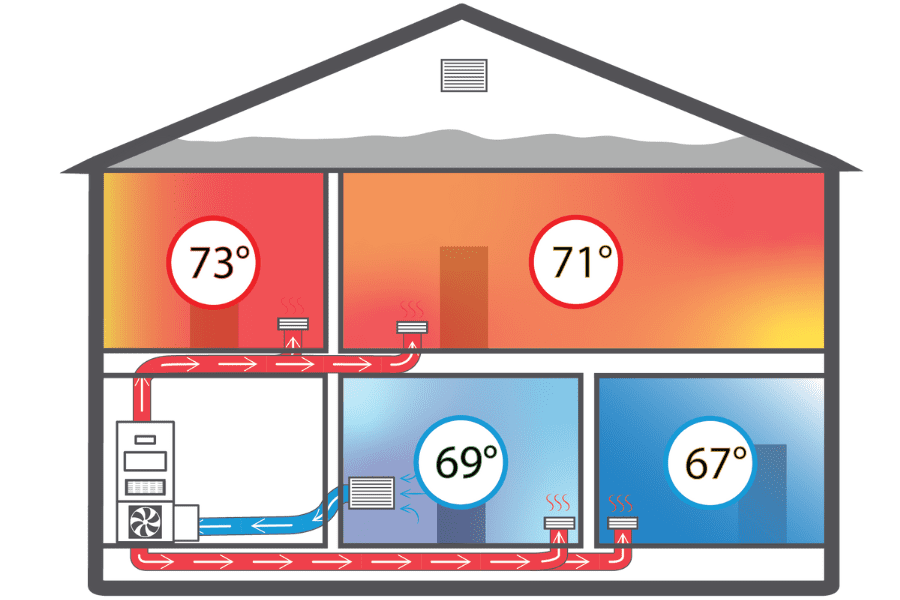May 15, 2024
Why Rebate Programs?
Rebate programs use incentives to encourage specific behaviors that support efficiency and clean energy goals, such as installing electric heat pumps. When these programs work effectively, money flows to projects that bring contractors work.
By: Charley Cormany

Over the years, Efficiency First California (EFCA) has strived to continually grow and adapt to changes in the industry.
Today, in addition to our extensive work as a trade organization (including contractor education and training, representing the contractor’s perspective in policy discussions, and creating and supporting online resources that connect contractors to homeowners), we provide utility support services. We offer a variety of services, such as managing trade ally networks and administering rebate programs. Currently, our largest contract is with the Sacramento Municipal Utility District (SMUD).
Why is a small non-profit trade organization involved in rebate program management? Most companies that provide similar utility support services are enormous, well-staffed private companies. It’s a reasonable question and one we must frequently answer. Understanding our objectives will help a bit.
From my perspective, we only have two goals. The first is promoting and supporting the growth of the clean energy industry as a whole. This includes contractor education, advocacy on behalf of contractors, and many other efforts.
The second directive is more specific, which is contractor success. Contractors need to make a living, which includes being paid well and making a profit. Let’s face the facts: if contractors can’t make a living supporting clean energy, it will die on the vine. Policymakers are counting on contractors to make the transition happen; if contractors can’t stay in business, the whole thing falls apart.
Back to rebate programs. The reason we are involved in rebate programs is twofold. The obvious answer is it provides revenue that fuels the organization. The second reason is to benefit contractors. Rebate programs use incentives to encourage specific behaviors that support efficiency and clean energy goals, such as installing electric heat pumps. When these programs work effectively, money flows to projects that bring contractors work. If rebate programs are convoluted and cumbersome, contractor participation drops off. As an organization, if we are serious about assisting contractors to be successful, we need to be involved with rebate programs in some capacity.
One advantage we bring to the table is that we speak contractor. Efficiency First California was founded by contractors and is supported by contractors. Most of our staff are current or former contractors. We understand what it’s like to sit at the kitchen table and present an offer to a homeowner. We have spent time in crawlspaces and attics and understand the challenges of working in these forgotten spaces in homes. We have hired, trained, and fired crew members. Managing human resources is challenging, and keeping good workers happy is hard, too.
SMUD knows its customers well and understands how to communicate with them. We understand contractors. Working together, we have built a successful partnership over the years.
The programs we manage for SMUD are doing well. The Advanced Home Energy program is one of the most successful programs SMUD has ever created. It started as a home performance program with twenty contractors doing a few hundred jobs yearly. Last year, we processed over five thousand projects and now have over four hundred participating contractors in the network.
SMUD is an electric-only utility. Most electric rebate programs measure their success by reducing electricity demand, often measured in megawatt (MW) hours of savings. For reference, a megawatt is enough energy to power 750 homes. Our program savings targets used to be based on megawatts of savings. In one year, the home performance program (HPP) saved five megawatts of energy, which is significant.
SMUD is a great partner. They are known for thinking outside the box and trying new things. An example is that the SMUD board has committed to making SMUD carbon neutral by 2030, well ahead of the state’s mandate. They are also the first electric utility to use greenhouse gas emissions as a performance metric. By taking the lead in decarbonization, SMUD sets the standard for other electric utilities to follow. There are lots of people across the nation watching what SMUD is doing. They are eager to replicate their success, and we are more than willing to help.
We spend a fair amount of time helping other rebate programs modify and adapt their programs. We openly share our “secret sauce” for rebate program design. We could make money by charging for this help, but we do it pro bono. Why? We believe making programs work better ultimately benefits contractors and the industry’s growth, two of our core objectives. Our fingerprints are all over rebate programs in California.
Another benefit of managing rebate programs is learning what works in practice vs. on paper. We try lots of new ideas. For example, we recently entered into a contract with Recurve and are excited to start using measured data to improve program performance at SMUD. Using measured data is the essence of the home performance model, and we are now applying it to rebate programs. Again, this speaks to working closely, as partners, with SMUD.
We could not reach the success we are enjoying without making some mistakes. As a society, we put too much emphasis on doing things right all the time. I encourage you to take risks, make mistakes, learn from them, and move forward. We are happy that SMUD shares this philosophy and is willing to try new things, too.
A final benefit is access to a large number of contractors. The SMUD trade ally network has over four hundred contractors and is growing. EFCA has direct access to these contractors. We interact with them daily, conducting surveys, visiting them on job sites, and learning about their challenges. All of this information helps us with the trade organization, our contractor directory tool, and our educational efforts.
As it turns out, supporting rebate programs benefits our contractor members and us. Revenue, knowledge, data, and a place to make mistakes — there are many reasons we are in this space. Ultimately, it all comes back to supporting industry growth and contractor success. Hopefully, you, the contractor, will appreciate the benefits too.
This article was originally published in the Efficiency First CA blog and is republished with permission.





